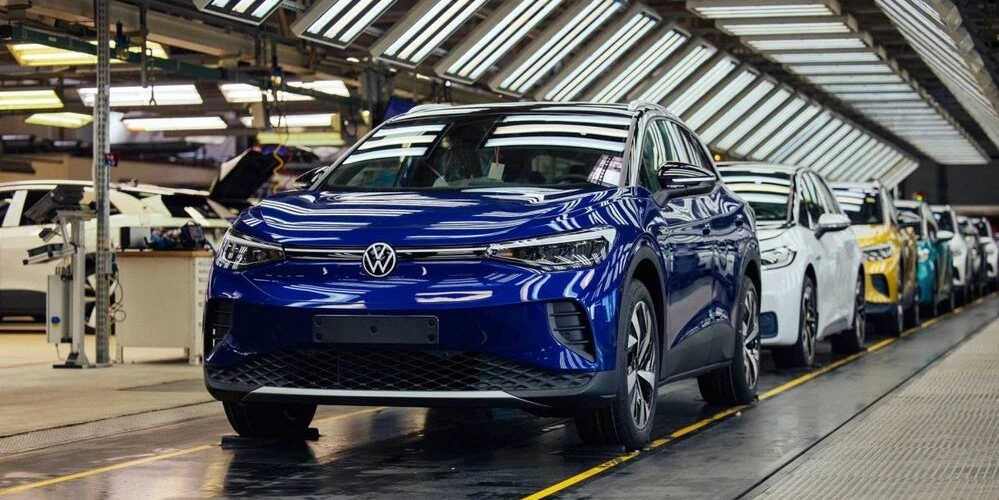The market for electric vehicles (EVs) in Germany is currently going through a unique phase following the elimination of the environmental bonus (Umweltbonus in German).
Although the registration figures for January, the first month since the incentive was removed, show a slight growth, both the automotive industry and sector experts express concern about a possible decrease in sales during 2024.
According to the Federal Motor Transport Authority (KBA in German), 10.5 percent of the new registrations this year are for EVs, totaling 22,474 units.
This type of driving experienced a 23.9 percent increase compared to the same month in 2023.
However, in discussions with Mobility Portal Europe, representatives from Deutsche Automobil Treuhand (DAT) warn: “The expansion or increase in EVs is in danger this year.”
“We do not observe a real acceleration in sales,” emphasize Martin Endlein, Head of Corporate Communications, and Martin Weiss, Head of Valuations from the neutral data entity of the automotive industry.
In this context, with the purpose of addressing increasingly hesitant customers to adopt electric mobility, German car manufacturers have decided to reduce the prices of their EVs.
Volkswagen is among them. The company has implemented a significant price reduction, offering discounts exceeding 7,000 euros.


In this regard, a question arises: Can the automotive industry cope with this expense?
That is the big question DAT is asking: “One prevailing feeling is whether companies really needed the incentive or if it was simply used to benefit their individual profits.“
Additionally, as manufacturers offer discounts to stabilize their sales, some buyers might be waiting for the possibility that the government introduces a new incentive, leading to a further reduction in car costs.
However, another significant issue arises in the current scenario, which is foreign competition.
In recent months, Tesla has implemented substantial price reductions for some of its models.
Out of the 22,474 new registrations of eVehicles in January, 2,393 belong to Elon Musk’s company, representing almost 11 percent of the total.
This phenomenon is clearly setting a trend in the EV market.
Although this price reduction competition starts in Germany, there is a possibility that it will be replicated in various markets in different countries.
Read more: France cuts subsidies for electric vehicles for higher-income buyers
According to DAT, this situation represents a “nightmare for the market, for distributors, but above all for the customer waiting for the next technological advance.”
Also, Stellantis CEO Carlos Tavares warns of a “race to the bottom that will end in a bloodbath” due to unrestrained discounts.
How will it impact sales of used EVs?
For the proper functioning of the market, there needs to be a price difference between a new and a used car.
In the case of EVs, if the prices of new models fall to the level of used ones, even with a small difference, it is highly likely that the end consumer will opt for the latest version.
This situation could have a significant impact on leasing rates.
In Germany, numerous companies have vehicles in their fleet, and approximately 80 per cent of them subscribe to leasing contracts for their corporate cars.
The 20 per cent buy cars assuming their own risk, implying the need to sell the autos at their own responsibility.
This latter group is “considerably concerned,” especially because they are unsure how to market used vehicles at a competitive price against the reduction in new model prices.
Similarly, this situation affects car rental companies.
It is observed that many of these companies choose to retain their vehicles for longer periods, affecting both the average age of the car fleet and the sales of manufacturers.
What will happen with the “Umweltbonus”?
The decrease in prices of EVs by German manufacturers could result in the non-reintroduction of incentives for these types of automobiles, as they perceive they have the ability to offer discounts without the need for external stimuli.
It is important to note that the elimination of the environmental bonus is linked to Germany’s tight current budget, which is why they are seeking to reduce expenses in different areas.
However, there is uncertainty regarding the permanence of these price reductions.
“We do not know if they will remain or if they are just a temporary effect, but we believe that manufacturers cannot return to their original prices,” they assert.








